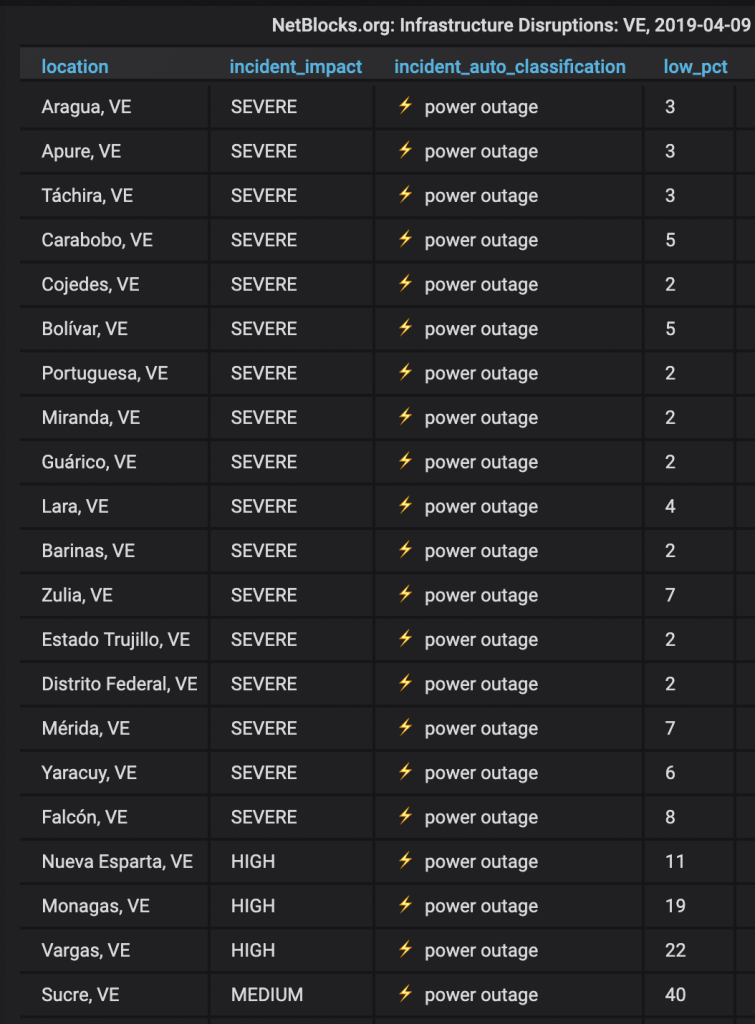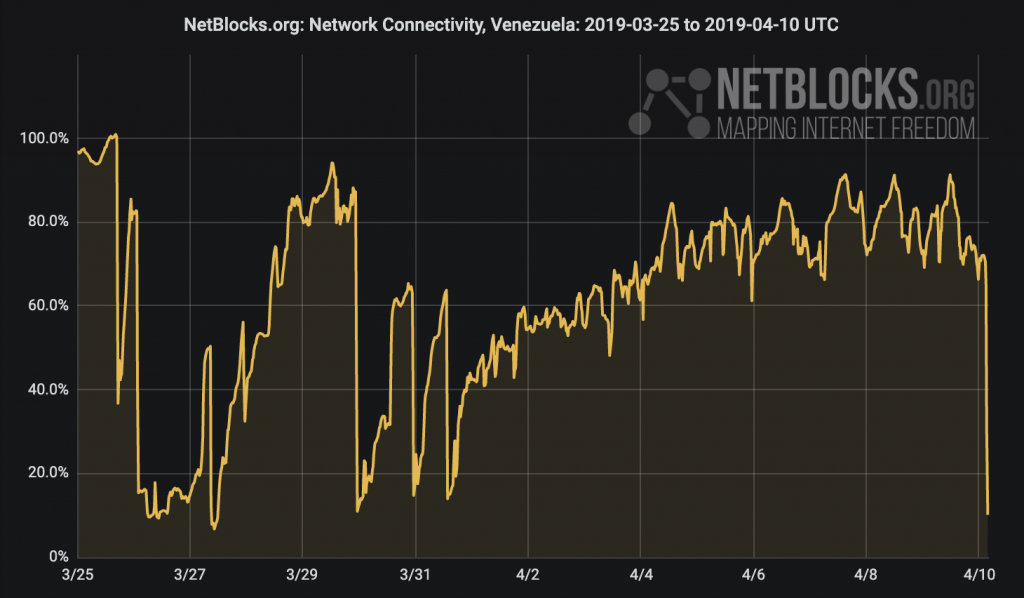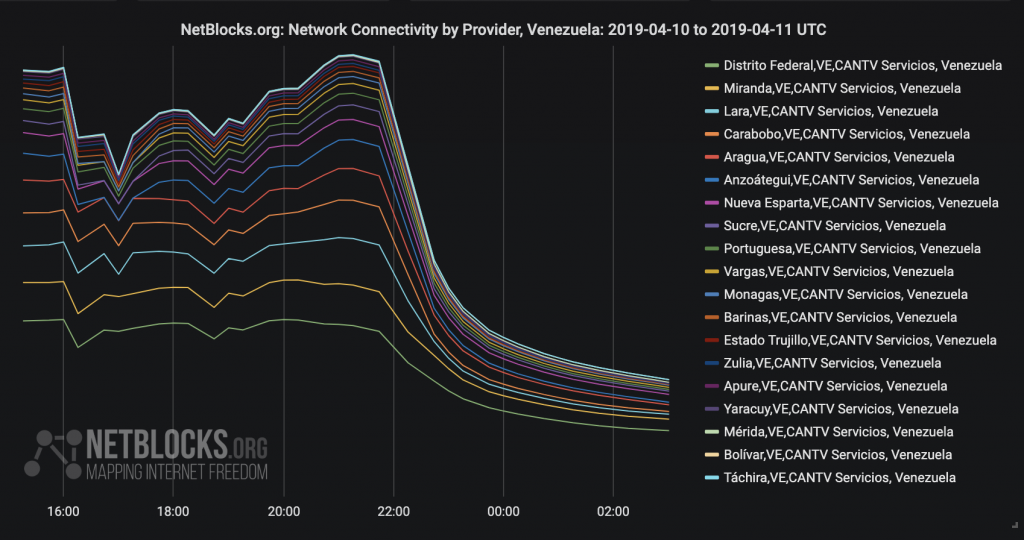The NetBlocks internet observatory has identified a widespread power outage across Venezuela at 3:30 AM UTC 10 April 2019 (local time 11:30 PM VET 9 April 2019), severely affecting most states and cities including Caracas, sending approximately 90% of the country’s telecommunications infrastructure offline.
Urgent: New nationwide power outage detected across #Venezuela; network data shows drop in national connectivity to just 10% setting back a week of recovery; incident ongoing #SinLuz #Apagon #9Abr ⬇️https://t.co/QfPURC0zi2 pic.twitter.com/QkhB34ChNc
— NetBlocks (@netblocks) April 10, 2019
Almost all states of Venezuela have been severely impacted by the new power outage with only limited connectivity remaining. Network data shows availability and power outage impact breakdown by region:
Update: Almost all states of #Venezuela have been severely impacted by the new power outage with only limited connectivity remaining; network data shows availability and power outage impact breakdown by region #SinLuz #Apagon #9Abr ⬇️https://t.co/QfPURC0zi2 pic.twitter.com/ixvgoUgvOH
— NetBlocks (@netblocks) April 10, 2019
The disruption comes following two weeks of recovery in the aftermath of the failure of Venezuela’s national grid, and is one of the most severe to strike the country since the onset of disruptions. Most states of Venezuela are now almost totally offline, with only limited network connectivity. Hospitals have reported failures and loss of life through the ongoing disruptions and the overall human and economic impact remains unknown.
NetBlocks diffscans, which map the entire IP address space of a country in real time, show internet outages corresponding to power cuts in the region.
Internet outages caused by electricity grid disruptions have a distinct network pattern used by NetBlocks to determine and attribute the root cause of an outage, a process known as attribution which follows detection and classification stages.
Update: Wednesday 10 April 6:00 PM UTC: National connectivity in Venezuela is currently at 55% after partial recovery led by Caracas. Data indicates difficulty maintaining power supply with several states still offline after 14 hours:
Update: National connectivity in #Venezuela is currently at 55% after partial recovery led by Caracas; data indicates difficulty maintaining power supply with several states still offline after 14 hours #SinLuz #ApagonGeneral #10Abr ⬇️https://t.co/QfPURC0zi2 pic.twitter.com/dYch2Aq0s8
— NetBlocks (@netblocks) April 10, 2019
Update: 3:40 AM UTC 11 April 2019: Venezuela’s state-run internet provider ABA CANTV has been experiencing a nationwide gradual loss of connectivity starting 9:45 PM UTC (5:45 PM VET). The ongoing incident is significantly different from previous disruptions and its underlying cause remains unexplained:
Update: #Venezuela's state-run internet provider ABA CANTV has been experiencing a nationwide gradual loss of connectivity starting 9:45 PM UTC (5:45 PM VET); incident ongoing #10Abr ⬇️https://t.co/QfPURC0zi2 pic.twitter.com/Zo84O6CYGN
— NetBlocks (@netblocks) April 11, 2019
Methodology
NetBlocks diffscans, which map the IP address space of a country in real time, show internet connectivity levels and corresponding outages. Purposeful internet outages may have a distinct network pattern used by NetBlocks to determine and attribute the root cause of an outage, a process known as attribution which follows detection and classification stages.
NetBlocks is an internet monitor working at the intersection of digital rights, cyber-security and internet governance. Independent and non-partisan, NetBlocks strives to deliver a fair and inclusive digital future for all.
[ press | contact ] Graphics and visualizations are provided for fair use in unaltered form reflecting the meaning and intent in which they were published, with clear credit and source attribution to NetBlocks. Intellectual property rights are protected including but not limited to key findings, facts and figures, trademarks, copyrights, and original reporting, are held by NetBlocks. Citation and source attribution are required at the point of use.



